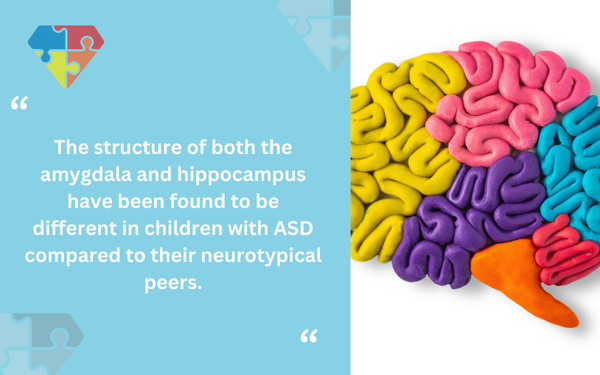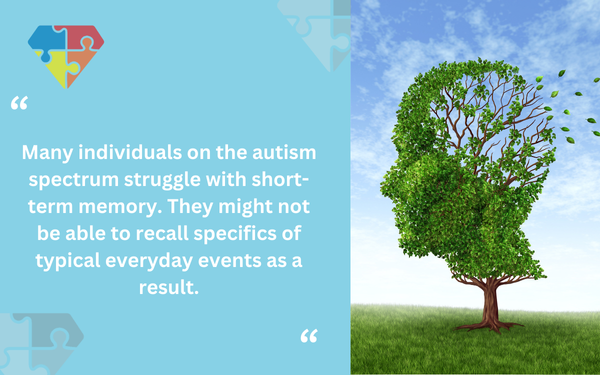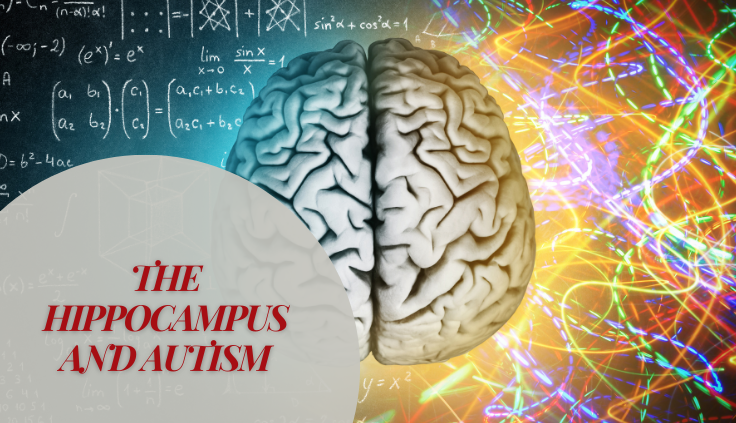The Hippocampus and Autism
Scientists and researchers have been studying autism spectrum disorder (ASD) for years, searching for increased knowledge of what causes autism and what some of the risk factors are for it, among other topics. A lot of progress has been made in these areas of study in recent years, though much is still unknown.
At this point, there is no one definitive cause that has been identified for autism, nor only one risk factor. Instead, it’s generally believed that there are multiple risk factors for developing ASD, including genetics, parental age, exposure to toxins and pollutants, prenatal health of the mother and exposure to certain medications, for instance.
In recent years, there’s also been much research conducted into why certain symptoms and effects of autism are what they are. For example, why do children on the autism spectrum have memories that operate a lot differently than that of neurotypical children?
Some studies have suggested that disruptions to the brain’s hippocampus could be the result. We’ll discuss that possibility, and the relationship between the hippocampus and autism, below.
Table Of Contents
What is the Hippocampus?
The hippocampus is located in the brain1. It’s only a small section of it, but it has a rather large job — aiding with memory and learning2.
This part of the brain is responsible for taking short-term memories and converting them into long-term ones. This is done through storing and organizing pieces of information in the brain, and then helping your brain to retrieve those memories.
The hippocampus also plays a role in spatial memory3, which allows you to learn about the environment around you. It also plays a role in verbal memory, which helps you pick the right words when speaking4.
It works very closely with other parts of the brain that require the information the hippocampus creates and then stores. For instance, the amygdala and hippocampus work in conjunction to connect emotions and memories5.
| Function | Role |
|---|---|
| Memory Conversion | Short-term to long-term |
| Spatial Memory | Understanding environment |
| Verbal Memory | Selecting appropriate words |
What is the Relation Between Autism, the Amygdala and Hippocampus?
The structure of both the amygdala and hippocampus have been found to be different in children with ASD compared to their neurotypical peers. Research has concluded that people with autism often have a larger hippocampus and a smaller amygdala6.

It’s not yet certain why this is the case, though researchers have theorized that it could be due to differences when the brain develops at an early age or genetic factors.
The amygdala being smaller could help explain why children on the autism spectrum often suffer from increased fearfulness, stress, anxiety and worry7. It could, then, explain why they might become easily overwhelmed with even small changes in their routine or might avoid social interactions altogether.
The hippocampus being larger might also help explain why children with autism have trouble creating new memories8. It could also be the reason why it’s hard for some children with ASD to recall past experiences or learn new information.
| Topic | Key Details |
|---|---|
| Causes of Autism | Multiple factors: genetics, parental age, exposure to toxins, prenatal health, medications |
| Role of Hippocampus | Memory formation, storage, spatial and verbal memory processing |
| Changes in Brain Structure | Larger hippocampus and smaller amygdala in individuals with ASD |
| Memory Effects in Autism | Struggles with short-term memory, potential for excellent selective long-term memory |
| Treatment Focus | ABA therapy to improve memory, communication, social, and daily life skills |
How Does Autism Affect Memory?
Autism actually has an interesting effect on a person’s memory, and there are connections to the hippocampus and how it functions.
Many individuals on the autism spectrum struggle with short-term memory. They might not be able to recall specifics of typical everyday events as a result8.

At the same time, some individuals with ASD also have an excellent long-term memory as it relates to certain things. They might have an uncanny ability to recall intricate details and facts about things that they are very interested in, for example.
What recent research is showing is that this could be due to altered volume in the hippocampus. This could be why people with autism struggle making current decisions that require the recall and use of information that they gained during past experiences.
Can Memory Be Improved?
Even with an abnormal hippocampus, children with autism can improve their memory skills. There are many ways to do this, and many such strategies that are integrated into applied behavior analysis treatment plans.
Also known as ABA therapy, it’s a science-based approach to learning and behavior that helps people on the autism spectrum gain the social, communication and daily life skills that they often struggle with, while also modifying certain negative and/or harmful behaviors.
Using various techniques, strategies and tools, therapists can help their patients build these skills over time. A lot of the treatment is carried out using play-based environments, and it can address deficiencies in memory that could be related to the hippocampus.
Blue Gems ABA Administers Personalized Treatment Plans for Children with ASD
Recent research suggests that abnormalities with the hippocampus in the autistic brain could be the root cause for some of the memory-related processing issues that people on the autism spectrum have.
This information could be used to not only understand autism more but also better support people who have it.
At Blue Gems ABA, we work every day with children on the autism spectrum to help them gain the skills they need to live happy, healthy, fulfilling, productive and independent lives.
We do this by administering ABA therapy on a one-to-one basis, creating personalized treatment plans that are catered specifically to each individual patient’s unique strengths and challenges.
To learn more, please contact us today.




